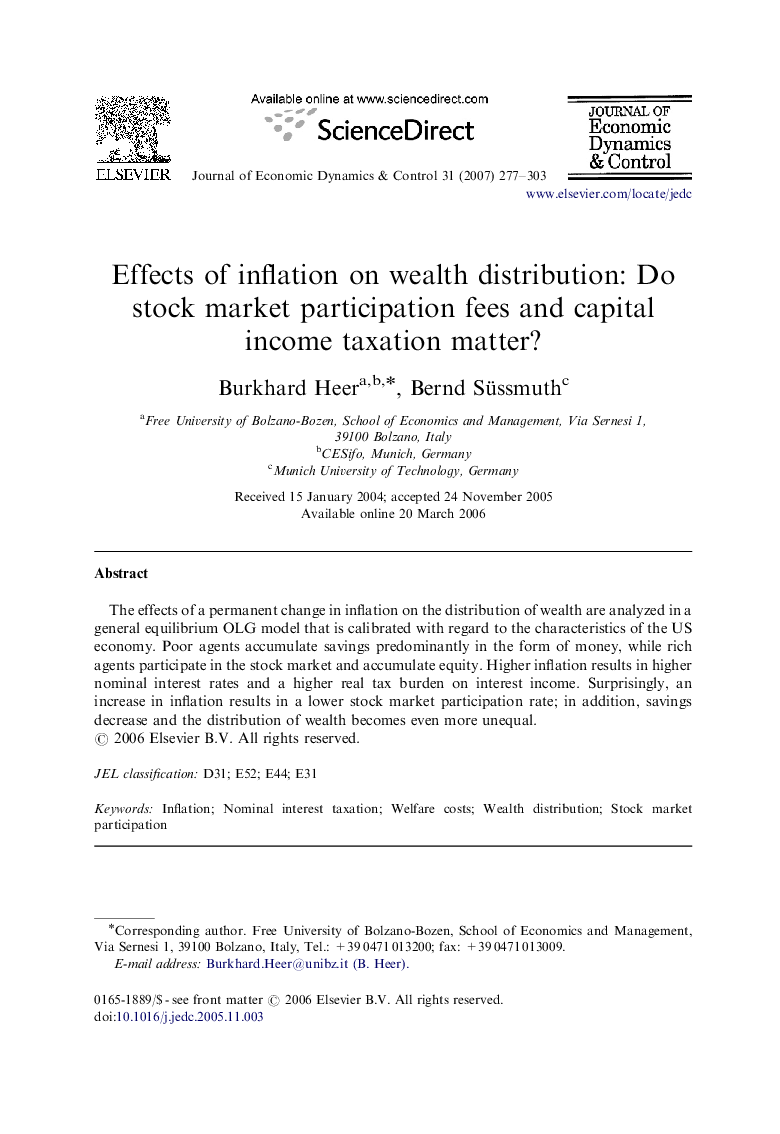| Article ID | Journal | Published Year | Pages | File Type |
|---|---|---|---|---|
| 5099363 | Journal of Economic Dynamics and Control | 2007 | 27 Pages |
Abstract
The effects of a permanent change in inflation on the distribution of wealth are analyzed in a general equilibrium OLG model that is calibrated with regard to the characteristics of the US economy. Poor agents accumulate savings predominantly in the form of money, while rich agents participate in the stock market and accumulate equity. Higher inflation results in higher nominal interest rates and a higher real tax burden on interest income. Surprisingly, an increase in inflation results in a lower stock market participation rate; in addition, savings decrease and the distribution of wealth becomes even more unequal.
Related Topics
Physical Sciences and Engineering
Mathematics
Control and Optimization
Authors
Burkhard Heer, Bernd Süssmuth,
